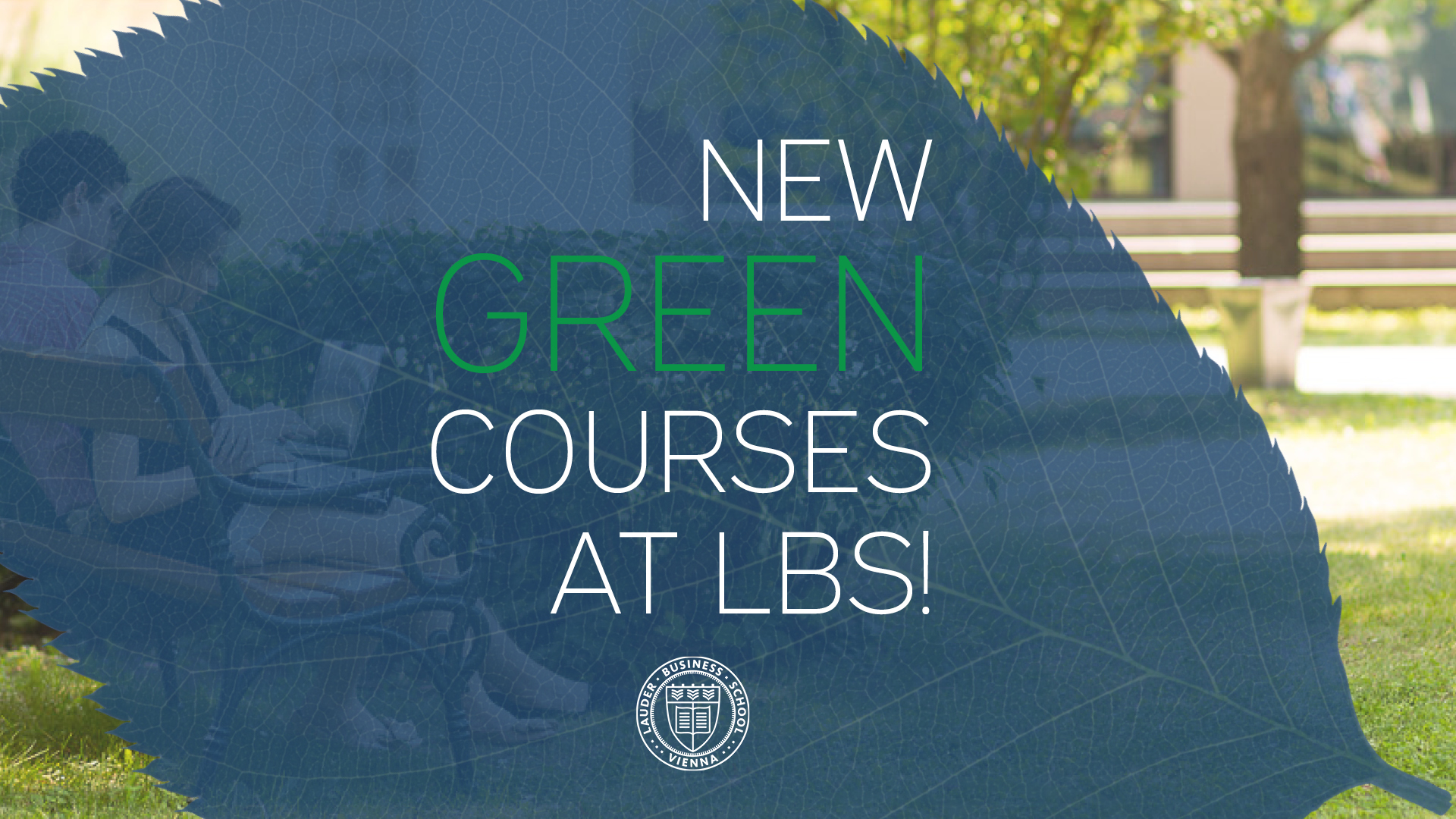
Our planet and its ecosystem are increasingly put at risk by the exploitation of natural resources, waste and pollution as a result of economic activities. After decades of exponential growth in GDP and population, natural limits in the form of limited capacities to assimilate waste and pollution, are increasingly binding constraints on further expansion along traditional pathways of economic growth.
An economic problem-analysis provides very clear results: The benefits of changing our course of action and saving nature from further degradation far outweigh the costs of doing nothing. While policy makers are in the driver seat to instigate change towards a sustainable organization of energy, mobility and economic systems, firms have a crucial role to play in what is called the social-ecological transformation.
Business schools, which are responsible for educating the business leaders of tomorrow, need to take up this challenge. After all, the disruptive change caused by new green technologies and green business models provides new economic opportunities, whereas a lack of managerial initiative towards greening their operations is likely to result in declining sales and rising capital costs.
As a response, LBS has decided to introduce new courses in the academic programs. The aim of the courses is to discuss the environmental impacts of economic activities, the economic analysis of why environmental problems arise in the first place as well as appropriate policy and business responses. A positive vision of the ability of firms to change and align their business models with environmental limits is conveyed and critically examined.
In the 4th semester of the BA “International Business Administration” program we introduced the “The Economics of Sustainability” course, which has proved to be a successful start for this new era of sustainability education at LBS. Two quotes from students express their enthusiasm regarding the subject:
“The subject of matter itself is very interesting and I feel that sustainability should be a subject that is taught in every university.”
“The course is interesting and important for the lives we are living now and in the future. The discussions were fascinating and mind-opening.”
In the 3rd semester of the “International Management and Leadership” master program the “Green Business Models and Sustainability” course was introduced, and will start in the fall term 2022. Environmental, social and governance (ESG) criteria with a strong emphasis on sustainable finance has also gained a pivotal role in investing, valuation, auditing, etc. and these aspects are channeled in the Strategic Finance and Business Analytics master program.
In addition, our lecturers are strongly motivated to include the relevant environmental aspects in all their courses, because sustainability is a cross-cutting issue and must be considered in every managerial decision – the sooner, the better. At LBS we strongly believe that we can make a positive contribution to both our environment and the bottom line of firms by “greening” our curriculum!
Read more: LBS goes Green


Recent Comments